外研版高中英语 必修三Module 3 The violence of nature warming up 课件 (共29张PPT)
文档属性
| 名称 | 外研版高中英语 必修三Module 3 The violence of nature warming up 课件 (共29张PPT) |
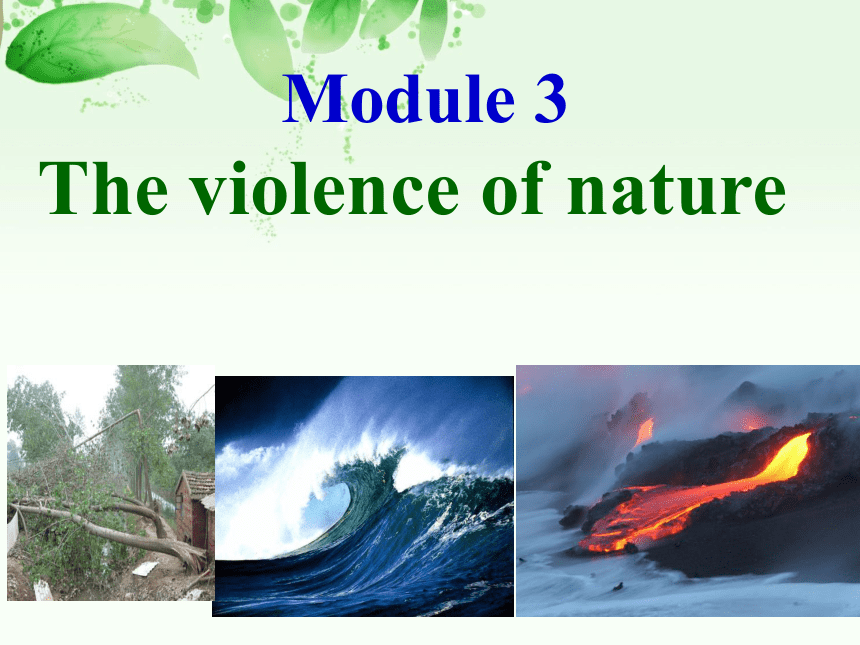
|
|
| 格式 | zip | ||
| 文件大小 | 3.1MB | ||
| 资源类型 | 教案 | ||
| 版本资源 | 外研版 | ||
| 科目 | 英语 | ||
| 更新时间 | 2020-04-25 20:32:32 | ||
图片预览

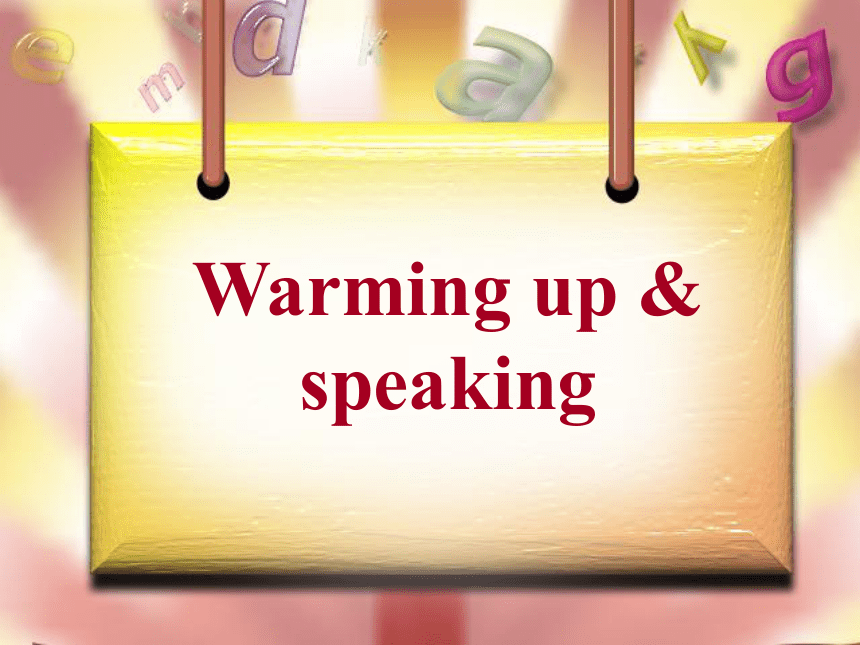

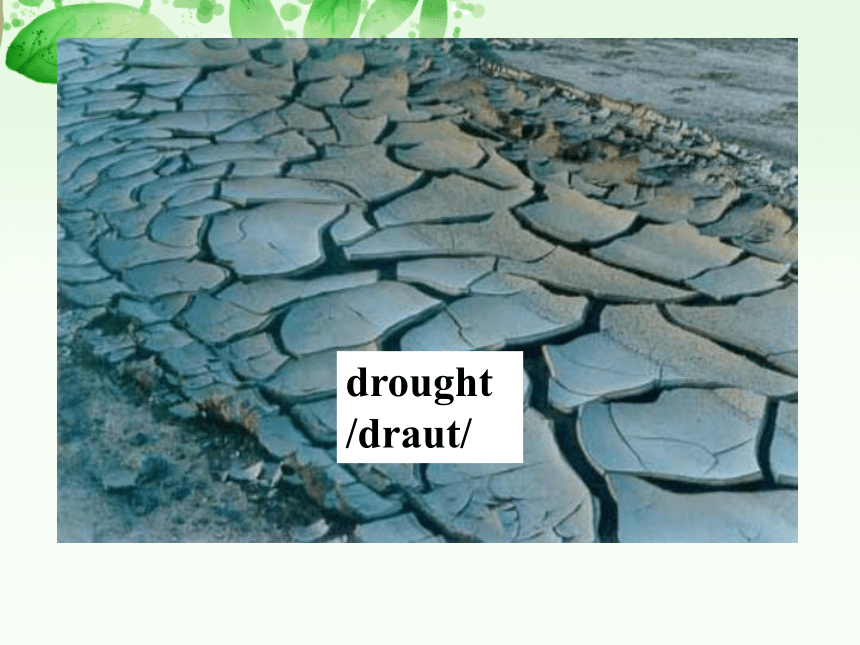

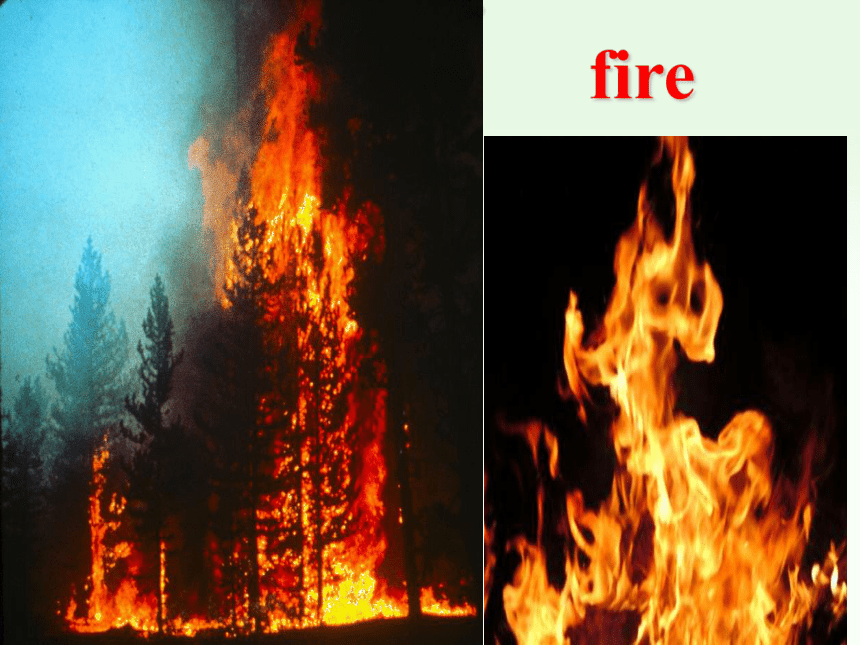
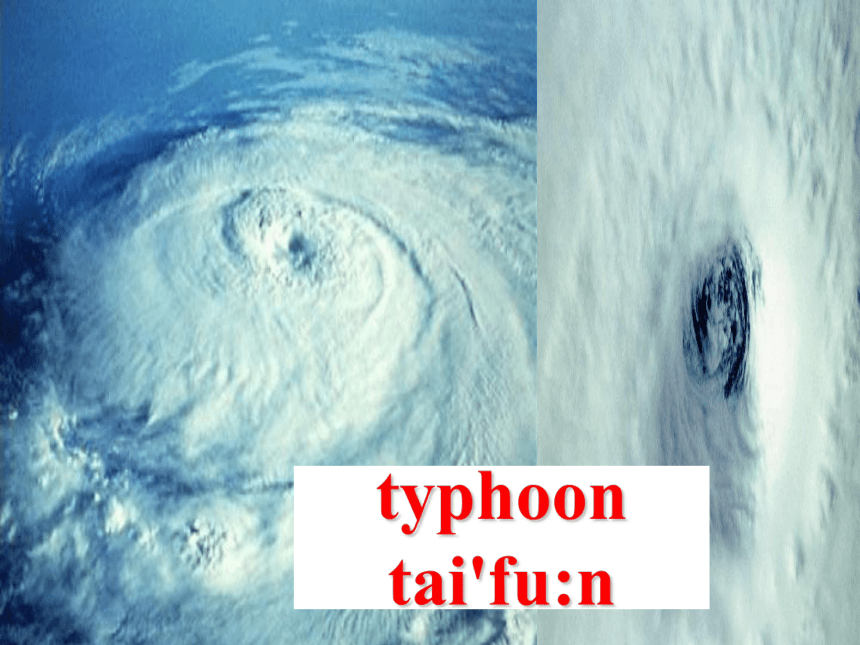
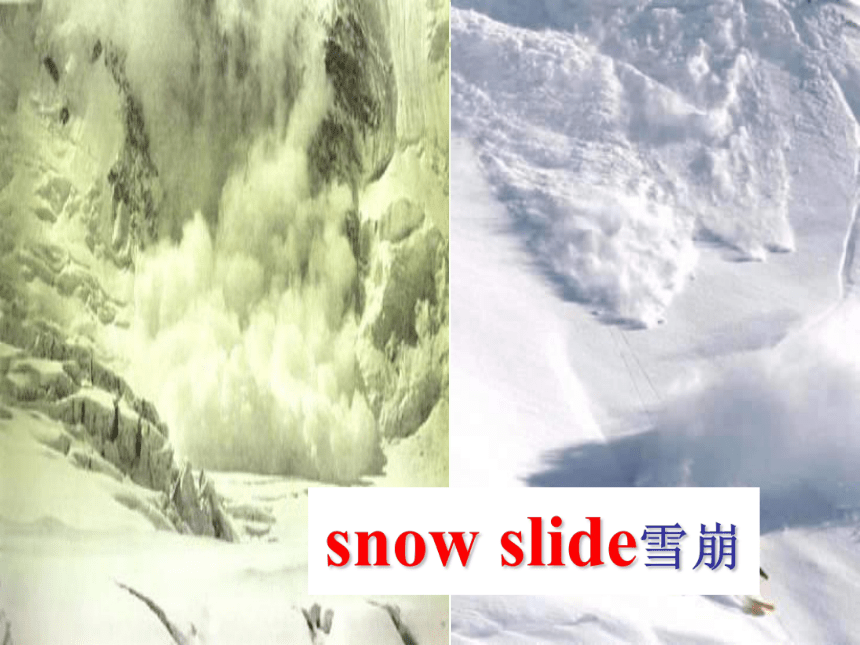
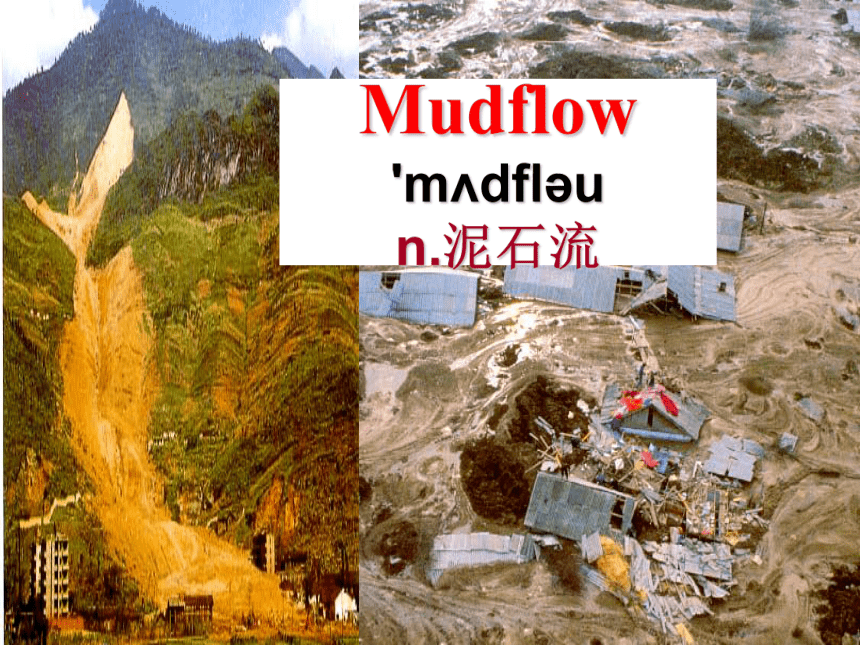
文档简介
(共29张PPT)
Module 3
The violence of nature
Warming up & speaking
What natural disasters have you heard of?
Lead-in
drought
/draut/
earthquake
fire
typhoon
tai'fu:n
snow slide雪崩
Mudflow
'm?dfl?u
n.泥石流
volcano
v?l'kein?u
volcano
tornado
t?:'neid?u
龙卷风
flood
tsunami
tsju:'nɑ:mi
海啸
How does nature form a danger to people in the world and how can science help reduce that threat?
Nature forms a threat to people because it destroys houses, crops, roads and communication lines and is a danger to our lives. Science can help us predict and give us knowledge, so we can prepare for it, and protect or even save people from disasters.
What words will you need to describe volcanoes and bad weather? Work in groups and find out as much as you can about volcanoes and the weather, especially hurricanes and typhoons.
Volcanoes & Earthquakes:
destruction, fire, heat, quake, shake, break, mountain, steam, flow, scale of Richter, roar, etc.
Bad weather: Hurricanes & Typhoons
storm, rain, wind speed, clouds, waves, blow away, fall, sky, sweep away, thunder, lightning, etc.
Words used in both
disaster, rescue, safety measures, predict, prevent, injury, terrible, unexpected, power, fear, grief, hospital, ambulance, doctor, scientist, etc.
Speaking
Speaking
Talk with your partner about the violence of nature.
How terrible!
I dare not...
He gets into a total panic when...
It makes my hair stand on end.
It’s a frightening thing...
She’s scared to death.
Useful expressions
It makes me feel very worried.
I’m afraid of...
I’m frightened to death by...
I’m really frightened to...
What’s really scary is...
What terrifies me is...
Dialogue 1
A: Are you afraid of thunder?
B: If it is a light one, it is nothing to me. But if it is a strong one, I will be scared. What about you?
A: I am a boy, it is just a thunder, it won’t scare me. But I know my cousin is really a coward. When she meets a rainy day, she dare not go out. Once there is a thunder, she is scared to death, and her mother must stay with her.
B: Really? How old is she?
A: She is only 6 years old.
A: Are you afraid of volcanoes?
B: No. I’m not. I guess because they are so far away. I mean, they are not something you see or hear about often, and if you do it is in TV programmes that want to make you more interested in volcanoes.
A: I heard about a movie that was
supposed to thrill you, but I haven’t seen it.
Dialogue 2
B: Yeah. I saw that one. That wasn’t
scary at all.
A: But what I mean is, would you be
afraid of volcanoes if you were living
in a village near them.
B: I don’t know. Most of the time
volcanoes are dead. Nothing happens
for hundreds of years.
A: How about an active volcano?
B: Nope. Some volcanoes smoke like a
kettle but nothing ever happens.
A: Well, I would be really scared if I
lived near an active volcano.
A: Have you ever encountered an earthquake?
B: Yes, when I was in senior middle school, an earthquake took place.
A: Were you afraid?
B: No, I just felt that the earth shaking a little, it stopped before I realized it was an earthquake. What about you?
Dialogue 3
A: I have never encountered one, and I don’t know the feeling in an earthquake. But my mother is afraid of earthquake very much.
B: Why?
A: My mother was in Tangshan in 1976 when the terrible earthquake took place. The earthquake happened in the midnight when everyone fell asleep. The earth cracked, the houses collapsed, and numerous people died in the earthquake.
B: It sounds terrible.
Module 3
The violence of nature
Warming up & speaking
What natural disasters have you heard of?
Lead-in
drought
/draut/
earthquake
fire
typhoon
tai'fu:n
snow slide雪崩
Mudflow
'm?dfl?u
n.泥石流
volcano
v?l'kein?u
volcano
tornado
t?:'neid?u
龙卷风
flood
tsunami
tsju:'nɑ:mi
海啸
How does nature form a danger to people in the world and how can science help reduce that threat?
Nature forms a threat to people because it destroys houses, crops, roads and communication lines and is a danger to our lives. Science can help us predict and give us knowledge, so we can prepare for it, and protect or even save people from disasters.
What words will you need to describe volcanoes and bad weather? Work in groups and find out as much as you can about volcanoes and the weather, especially hurricanes and typhoons.
Volcanoes & Earthquakes:
destruction, fire, heat, quake, shake, break, mountain, steam, flow, scale of Richter, roar, etc.
Bad weather: Hurricanes & Typhoons
storm, rain, wind speed, clouds, waves, blow away, fall, sky, sweep away, thunder, lightning, etc.
Words used in both
disaster, rescue, safety measures, predict, prevent, injury, terrible, unexpected, power, fear, grief, hospital, ambulance, doctor, scientist, etc.
Speaking
Speaking
Talk with your partner about the violence of nature.
How terrible!
I dare not...
He gets into a total panic when...
It makes my hair stand on end.
It’s a frightening thing...
She’s scared to death.
Useful expressions
It makes me feel very worried.
I’m afraid of...
I’m frightened to death by...
I’m really frightened to...
What’s really scary is...
What terrifies me is...
Dialogue 1
A: Are you afraid of thunder?
B: If it is a light one, it is nothing to me. But if it is a strong one, I will be scared. What about you?
A: I am a boy, it is just a thunder, it won’t scare me. But I know my cousin is really a coward. When she meets a rainy day, she dare not go out. Once there is a thunder, she is scared to death, and her mother must stay with her.
B: Really? How old is she?
A: She is only 6 years old.
A: Are you afraid of volcanoes?
B: No. I’m not. I guess because they are so far away. I mean, they are not something you see or hear about often, and if you do it is in TV programmes that want to make you more interested in volcanoes.
A: I heard about a movie that was
supposed to thrill you, but I haven’t seen it.
Dialogue 2
B: Yeah. I saw that one. That wasn’t
scary at all.
A: But what I mean is, would you be
afraid of volcanoes if you were living
in a village near them.
B: I don’t know. Most of the time
volcanoes are dead. Nothing happens
for hundreds of years.
A: How about an active volcano?
B: Nope. Some volcanoes smoke like a
kettle but nothing ever happens.
A: Well, I would be really scared if I
lived near an active volcano.
A: Have you ever encountered an earthquake?
B: Yes, when I was in senior middle school, an earthquake took place.
A: Were you afraid?
B: No, I just felt that the earth shaking a little, it stopped before I realized it was an earthquake. What about you?
Dialogue 3
A: I have never encountered one, and I don’t know the feeling in an earthquake. But my mother is afraid of earthquake very much.
B: Why?
A: My mother was in Tangshan in 1976 when the terrible earthquake took place. The earthquake happened in the midnight when everyone fell asleep. The earth cracked, the houses collapsed, and numerous people died in the earthquake.
B: It sounds terrible.
